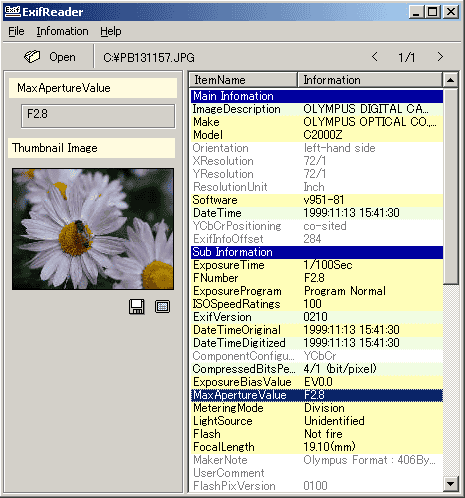H
hisser
Hello friends, the title explains it all! so lets get started 
First a few rules you should ALWAYS follow:
Use Firefox over other web browsers, even chrome since it tracks your browsing habits and there's no way yet to prevent this(EDIT: Check below about this). you will need some Add-ons for it to help you with this:
Oh and if you use WiFi make sure you use WPA2 with AES encryption, since WEP can be easily cracked & traffic on the network will be "sniffable"
Thank you PhenoMenal!:
Stay safe & enjoy your freedom
First a few rules you should ALWAYS follow:
- Update your operating system & all software installed, most of the time the updates include security patches.
- Go for Open source software over closed source ones, these tend to be more secure since they're community driven & get audited & patched way quicker than the rest.(plus it's always free)
- Use a firewall, the ones that comes with windows aren't bad, if you are not sure what's on the allow list you can always reset the rules & let through what you trust from scratch.
- Use peerblock to further strengthen your firewall by blocking suspicious/bad networks, you can add more lists to it by using iblocklist recommended ones are: level1, level2, level3, spam, spyware, badpeers, hijacked, dshield, Primary threats, spider, & malicious lists.
- Use tor & a VPN when connecting to websites & with instant messaging clients if you want your chats to stay private (like skype or windows live messenger)
- NEVER install bundled software such as toolbars that comes with something else(most of the time they're adware/spyware & wont help you at all)
- Store your sensitive data in an encrypted folder or drive, you can do that by using something like truecrypt
- Have an antivirus running with scheduled weekly automatic scans, recommended ones are Microsoft Security Essentials, CLAMAV, & Avast! antivirus Free edition & always update it.
- Install anti adware/spyware/malware tools like Spybot Search & destroy & Antimalware from malwarebytes or windows defender to immunize & clean your system.
- Always use a new blank browser TAB/Window when visiting another website, web servers know where you came from & where you left to!
- Use HTTPS over HTTP, HTTPS is encrypted, HTTP traffic can be easily monitored since its sent & received in clear text.
- Securely Erase content/free space by using tools such as Ccleaner.
- Keep a sledgehammer handy incase all fails.
Use Firefox over other web browsers, even chrome since it tracks your browsing habits and there's no way yet to prevent this(EDIT: Check below about this). you will need some Add-ons for it to help you with this:
- BetterPrivacy (Super-Cookie Safeguard)
- FoxyProxy (allows you to set predefined proxy settings using tor for certain websites/patterns)
- Ghostery (prevents tracking)
- HTTPS-Everywhere (automatically use HTTPS encryption on sites that support it)
- Adblock Plus & adblock plus pop-up add-on. (some ads are bad for you!)
Oh and if you use WiFi make sure you use WPA2 with AES encryption, since WEP can be easily cracked & traffic on the network will be "sniffable"
Thank you PhenoMenal!:
Looks like Google has finally made a permanent Opt-Out extension for tracking cookies, so here are the recommended extentions to use with it in case you prefer chrome over firefox:just a few things off the top of my head
- there are websites like VirusTotal, Jotti's VirusScan etc where you can upload a file to have it scanned by dozens of different antivirus engines simultaneously. Free.
- use a strings viewer program to look for suspicious text in executable files, or a hex editor for more advanced users. Pretty much all Strings viewers are free cos theyre so simple, and theres plenty of free hex editors.
- use utilities such as NoScript that disable scripts at websites by default until you allow them. Free.
- ScriptNo: "Regain control of the web and surf more securely."
- No History: "Stop Chrome from recording your browsing history."
- Keep My Opt-Outs: "Permanently opts your browser out of online ad personalization via cookies."
- HTTPS Everywhere: "Encrypt the Web! Automatically use HTTPS security on many sites."
- Ghostery: "Protect your privacy. See who's tracking your web browsing with Ghostery."
- FoxyProxy Standard: "FoxyProxy simplifies configuring browsers to access proxy-servers, offering more features than other proxy-plugins"
- Flag for Chrome: "This extension displays country or region name, Geo, Google PageRank, Alexa Rank and WOT info for the websites you're visiting."
- Click&Clean: "Deletes your browsing history, typed URLs, Flash cookies, all traces of your online activity to protect your privacy." <-- used to delete LSO cookies, you have to disable background apps when Google Chrome is closed for this to work, the option is under chrome's advanced settings.
- Adblock Plus: "Ads were yesterday! The successful extension Adblock Plus is now available for Google Chrome™."
- Referer Control: "Control the HTTP Referer on a per-site basis."
Stay safe & enjoy your freedom



 mate
mate

